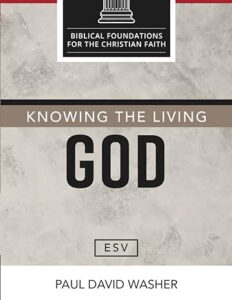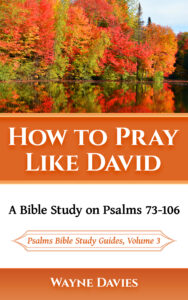
As 2024 comes to a close, let’s meditate on the fourth name of Jesus in Isaiah 9:6:
“For to us a child is born, to us a son is given; and the government shall be upon his shoulder, and his name shall be called Wonderful Counselor, Mighty God, Everlasting Father, Prince of Peace.”
I have benefitted greatly from Dr. Joel Beeke’s sermons on this passage. (See below for free access to the entire sermon, “Jesus, Our Prince of Peace.”)
He begins by answering two questions:
Question 1: What is a prince?
“My dictionary defines ‘prince’ as a ruler of a state. In Bible times, this word had the meaning of a leader or even a king. It’s not the prince here waiting to be a king, but this Messiah is a king. He came to be a king in his human nature but he’s now the great Prince of Peace who is at the right hand of the Father, who is King of kings and Lord of lords. It’s him of whom Isaiah speaks. His name is the Prince of Peace.”
Question 2: What is peace?
“And my dictionary defines ‘peace’ this way: a state of tranquility or quiet; freedom from disturbance and disquieting thoughts or emotions. It is harmony in personal relations – be it with God or with others. Peace is what Christ alone can bring. You can’t give harmony with God to yourself. It depends on him, by his Spirit.”
Would you like to live a life of peace? I sure do. But I find peace elusive, and at times, out of reach. I get anxious and feel stymied in my pursuit of peace by my own tendency to worry. And I find myself fretting about little things.
You may know what I mean – I worry about “the small stuff” of life. In retrospect, 99.9999% of what I worry about never happens. What’s up with that?
And then I read this statement and realize, once again, that there is hope for our troubled hearts:
“Peace is what Christ alone can bring.”
If we want peace, we must go to Jesus, the Prince of Peace, to get it. He has peace, and plenty of it. Furthermore, he wants to give it to us!
Jesus said so himself:
“Peace I leave with you; my peace I give to you. Not as the world gives do I give to you. Let not your hearts be troubled, neither let them be afraid” (John 14:27).
The world has a peace. It’s a false peace, a counterfeit peace, a deceptively empty peace. It’s the devil’s peace. And it’s light years away from the true peace that only Christ can give.
I want Christ’s peace. Don’t you?
How do we get this peace? Jesus told us how.
“I have said these things to you, that in me you may have peace. In the world you will have tribulation. But take heart; I have overcome the world” (John 16:33).
We can find the peace of Christ in the words of Christ.
“I have said these things to you . . .”
The words of Christ can bring the peace of Christ. When we spend time in his presence, listening to him by reading, studying, and meditating on Scripture — literally hanging on his every word — he gives us his peace, calming our fears and easing our troubled hearts. By focusing on what says, he replaces our anxiety with his tranquility.
The Apostle Paul said something similar:
15 And let the peace of Christ rule in your hearts, to which indeed you were called in one body. And be thankful. 16 Let the word of Christ dwell in you richly, teaching and admonishing one another in all wisdom, singing psalms and hymns and spiritual songs, with thankfulness in your hearts to God.
Colossians 3:15-16
Note the relationship between the peace of Christ and the word of Christ:
Let the peace of Christ rule in our hearts.
Let the word of Christ dwell in your richly.
Christ’s peace can rule in our hearts when Christ’s word dwells in us richly.
May we experience the supernatural peace of God by spending quality time in the Word of God.
A 5-Sermon Series on Isaiah 9:6, by Dr. Joel Beeke, is available for free in audio, video, and written (PDF) formats. NOTE: The sermon quoted above is sermon #5, “Jesus, Our Prince of Peace.”
https://www.sermonaudio.com/series/142382








